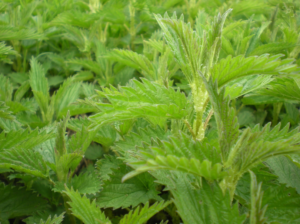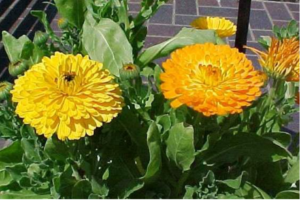This week, the signs of spring became unmistakable: blooming daffodils, April showers, and our cars and porch awash in yellow pollen. The latter is a sure sign that the time for spring allergies is upon us. It seems particularly cruel that just as we’re ready to emerge from a long winter, the “one-leggeds” are gettin’ busy and not keeping it in their plants. Of course, they’re just trying to survive, but it’s always about us, isn’t it?
The big allergy culprit this time of year in the Pacific Northwest is tree pollen. My husband never had allergies until he moved to Washington. The evergreens here really have his number. He loves to work in the yard, but in the spring I have heard him sneeze – I am not exaggerating – 14 times in a row. These are gut-busting sneezes and make for a killer ab workout. Too bad they are too painful to substitute for a visit to the gym.
Sneezing is just one of the many ways our bodies react to irritating particulates. Others are a runny and/or stuffy nose, sinus headache, sore throat, itchy eyes, foggy thinking, and fatigue. It’s hard work expelling pollen from your respiratory tract!
Luckily, what Mother Nature giveth, she also taketh away. She makes one of her most effective respiratory remedies available in early spring when allergies are at their peak.

Nettle tea. One of nettle’s (Urtica dioica) amazing uses is to relieve lung conditions, including hay fever, allergies, bronchitis and asthma. When my husband regularly drinks nettle tea, he sees a marked improvement in his sneezing. It’s ideal to begin drinking the tea several weeks before allergy season. (Herbs are effective, but don’t work like pills that may quickly and temporarily remove the acute symptom. It takes longer for herbs to work because they support what your body naturally does to keep itself healthy.) But even a cup of nettle tea in the morning, afternoon and evening now makes a difference.
Don’t let its stingers fool you! In addition to aiding respiratory conditions, nettle is a friend to your kidneys, helping to cleanse and discharge the byproducts of metabolism. It is a diuretic, helps arthritis and assists the lymphatic system. My teacher Karen Sherwood shared an amazing story about one of her students using nettle steam and moxibustion to successfully treat an acute asthma attack within minutes. Nettle is also a superfood: a good source of protein, it is high in iron, calcium, magnesium, B complex, and Vitamins C, D and K.

Calendula eye wash. One of my favorite herbs for itchy eye relief is calendula flowers. Also known as pot marigold, calendula (Calendula officinalis) has been used for centuries to cool and soothe skin conditions. It is also an astringent and fights bacteria (the unhelpful kind). To relieve itchy eyes, infuse about 1 oz. of dried calendula flowers in 1 qt. of boiling water and let it cool for at least four hours. (Or you can cool it more quickly in the refrigerator.) Soak a washcloth with the calendula tea and lay it over your eyes to make them feel wonderful. (This is helpful whenever your taken-for-granted peepers need some extra lovin’.)
Note: You can purchase dried nettle and calendula from Mountain Rose Herbs and Starwest Botanicals. Traditional Medicinals also makes nettle tea that’s available at many grocery stores. (For greater effect, try brewing a stronger cup with 2-3 tea bags or 1+ Tbsp. of dried bulk nettle.)
Here’s hoping your “Ah(choo!) spring” changes quickly to “Ahhhhhhhh, spring”!
